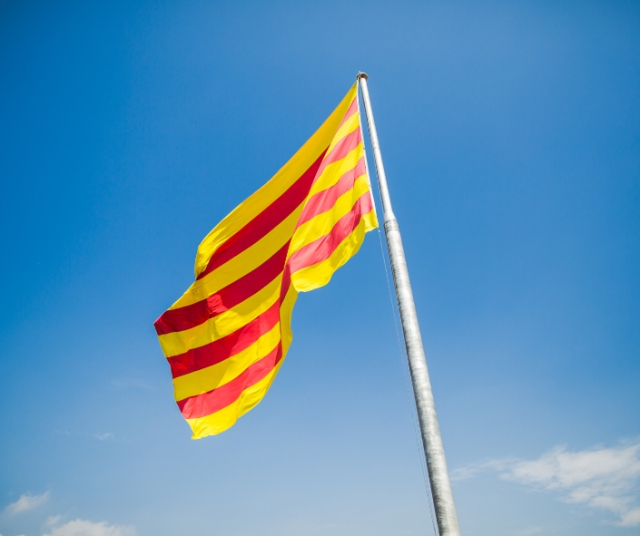September 11 is a date of great importance in Catalonia, an autonomous community in the northeast of Spain. On this day the National Day of Catalonia is celebrated, also known as the Diada. This festivity commemorates a key historical event in the struggle for the identity and autonomy of Catalonia.
It might interest you: Calendar September 2023 - Spain
Historic context
To understand the relevance of the National Day of Catalonia, it is necessary to know the historical context in which it is framed. Catalonia is a region with a distinct identity and language within Spain. Throughout the centuries, Catalonia has sought to preserve its culture and defend its autonomy against the central powers. During the 18th century, the War of the Spanish Succession had a significant impact on Catalonia, and in 1714 Barcelona suffered a defeat before the Bourbon troops , which meant the loss of its self-governing institutions and the prohibition of the Catalan language.
The key event: Siege of Barcelona in 1714
On September 11, 1714, after a long siege, Barcelona fell into the hands of the Bourbon troops during the War of Succession . This defeat marked a milestone in the history of Catalonia and meant the imposition of the centralization of power in Spain . The siege of Barcelona symbolized the loss of Catalan freedoms and self-government, as well as the suppression of the Catalan language and culture.
Resurgence of the National Day of Catalonia
During the Franco regime (1939-1975), the celebrations of the National Day of Catalonia were prohibited due to the political and cultural repression imposed by the central government. However, after Franco's death and the transition to democracy, the Diada reemerged as a symbol of claiming Catalan identity and autonomy.
Meaning and claims
The National Day of Catalonia has a deep meaning for the Catalans. In addition to commemorating the siege of Barcelona in 1714, the Diada has become a day of political and social vindication. For many Catalans, 9/11 is a time to express their desire for self-rule and greater independence from Spain. During the last decades, movements and demonstrations in favor of the independence of Catalonia have been carried out, which has generated an intense political and social debate both at a regional and national level.
Celebrations and activities
The National Day of Catalonia is celebrated with a wide variety of activities throughout the region. Barcelona, the Catalan capital, is the epicenter of the celebrations, but events are also held in cities and towns throughout Catalonia.
Demonstrations and parades: During the Diada, massive demonstrations take place in the main Catalan cities, especially Barcelona. Thousands of people take to the streets carrying Catalan flags and banners with messages in favor of the independence and autonomy of Catalonia. These demonstrations are peaceful and aim to express the unity and determination of the Catalan people.
Floral offering at the Monument to Rafael Casanova: One of the most emblematic acts of the Diada is the floral offering that is made at the monument to Rafael Casanova , one of the heroes of the resistance during the siege of Barcelona in 1714. The authorities and representatives of different institutions place wreaths in his memory, and citizens also pay homage by laying flowers at the foot of the monument.
Human chain: In recent years, one of the most outstanding initiatives during the Diada has been the formation of a human chain that runs throughout Catalonia. Thousands of people join hands forming a human line that crosses highways, streets and bridges, thus connecting different cities and towns in the region. This human chain symbolizes the unity and determination of the Catalan people in their search for independence and autonomy.
Concerts and cultural activities: During the Diada, numerous concerts and cultural activities are held in different public spaces in Catalonia . From traditional Catalan music concerts to theater performances and dance performances, these cultural activities are an important part of the festivity and help promote and preserve Catalan culture.
Exhibitions and educational events: During the Diada, exhibitions and educational events are organized in museums, cultural centers and libraries to promote knowledge about the history and culture of Catalonia. These activities offer an opportunity for both Catalans and visitors to learn more about the region's rich history and identity.
Information and debate points: Information and debate points are set up in squares and public places, where informative materials are offered and talks and debates are held on issues related to the autonomy and independence of Catalonia. These spaces encourage dialogue and reflection on relevant political and social issues for the region.
Special television and radio programs: The media in Catalonia also play an important role during the Diada . Both television and radio usually broadcast special programs dedicated to the festivity, where its historical and political significance is analyzed, political leaders are interviewed, and testimonies of citizens who participate in the celebrations are collected.
Tribute to the victims of the 2017 attack: In 2017, the National Day of Catalonia was marked by a tragic terrorist attack in Barcelona . Since then, during the Diada, homage is paid to the victims of this attack, with commemorative acts and shows of solidarity.
Cultural and political significance
The National Day of Catalonia is a date that reflects the importance of Catalan identity and autonomy. The celebration of this festivity is a reminder of the historical legacy of Catalonia and of the continuous struggle for the preservation of its language, culture and self-government. In addition, the Diada has acquired a relevant political character in recent years, since it has been used as a platform of expression for those who defend the independence of Catalonia and the creation of a sovereign Catalan state.
